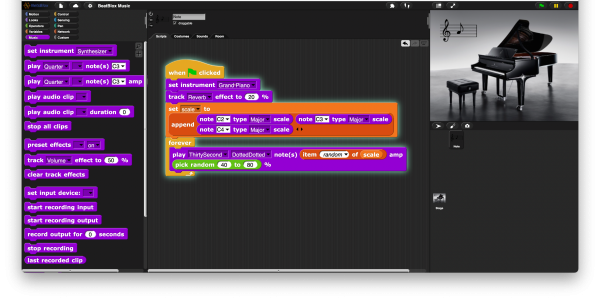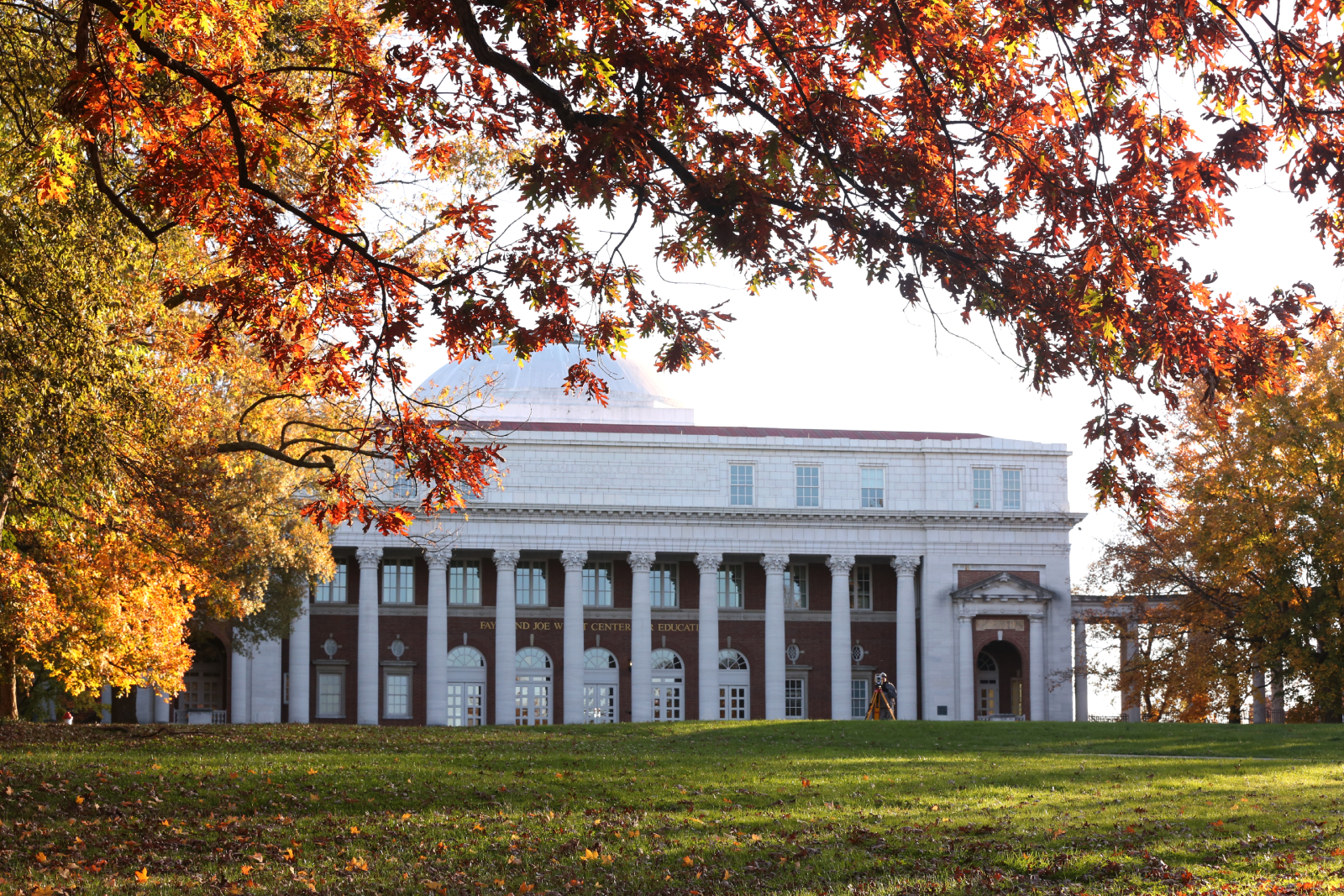By Jenna Somers
A trans-institutional team from the LIVE Initiative at Vanderbilt University has progressed to the final round of the National Science Foundation’s Visionary Interdisciplinary Teams Advancing Learning (VITAL) Prize Challenge for designing BeatBlox, a music-based framework for teaching computer science. The team, Code to Joy, includes researchers from Vanderbilt’s Blair School of Music, Peabody College of education and human development, and School of Engineering.
Code to Joy is among 18 finalists in the VITAL Prize Challenge, a competition that invests in emerging technologies and innovations for K-12 education, especially to improve the learning experiences of historically marginalized students. Teams are divided into three categories, and each category will have a first, second, and third place winner awarded $250,000, $150,000, and $100,000, respectively. Additionally, each of the finalists has received $50,000 of research and development funding for the final round. Winners will be announced in January.
“I am proud of the Code to Joy team for advancing to the finals of the VITAL Prize Challenge. Their success is not the least bit surprising given that BeatBlox helps to address urgent priorities in K-12 education. It introduces students of all backgrounds to computer science concepts and harnesses their musical creativity to develop their interest in learning essential programming skills. I look forward to seeing the continued progress of the Code to Joy team during this final stage of the competition,” said Alyssa Wise, professor of technology and education and director of the LIVE Initiative.
BeatBlox uses a block-based visual programming environment to teach complex computer programming concepts to novices, primarily middle and high school students, by allowing users to create, manipulate, and experiment with music across various genres. Users have access to a block-based library, internet data, and curricular modules for learning programming concepts.

“Block-based programming is akin to connecting Legos, where each Lego has a functionality analogous to a computer programming concept. By connecting the blocks in various ways, users can create full musical compositions,” said Will Hedgecock, PhD’14, BEng’08, a research scientist and adjunct assistant professor at the Institute for Software Integrated Systems at Vanderbilt and a Code to Joy team leader.
“We’re trying to make computer science education more accessible by connecting it to music, something that is already of interest to most people. For those from underrepresented minority groups, women in engineering, and people who don’t have the means to access technologies that enable this type of learning, we thought music was a great way to bridge that gap,” Hedgecock said.
“Code to Joy presents an excellent opportunity for like-minded students from computer science and music backgrounds to work together. Learning concepts from either area can even be enhanced by combining these subjects (as with music and math) to make each more accessible,” added Pascal Le Boeuf, assistant professor of the practice in music and technology and a Code to Joy team leader.
Importantly, BeatBlox helps to address a pressing need in K-12 education, as states continue to create policies requiring computer science education, often as a prerequisite to graduate high school. Unfortunately, many teachers report a lack confidence in their own computer science knowledge and feel uncomfortable teaching the subject. With that understanding, the Code to Joy team aims to build teachers’ confidence through professional development with BeatBlox. Teachers will then be able to tap into their students’ creativity, enabling them to create their own music, while intuitively learning computer science concepts.
The Code to Joy team envisions that whole classes will be able to collaborate in creating a digital orchestra, where each student’s laptop serves as a single instrument, and when played together, they become an orchestra.
A key strength of BeatBlox is its foundation, NetsBlox, a Vanderbilt-designed block-based educational program to increase student engagement in computer science programming. For the past eight years, the Institute for Software Integrated Systems has continued to develop NetsBlox. The Code to Joy team was able to refine the technology’s capabilities to create BeatBlox, engaging middle school teachers and first-year students throughout Vanderbilt in co-design sessions. The team also consulted with Professor Wise, a leading researcher on the design of computer-facilitated learning environments, who advised the team on their co-design approach with students.
In addition to Hedgecock and Le Boeuf, members of Code to Joy include Corbette Doyle, senior lecturer of leadership, policy, and organizations; and Akos Ledeczi, professor of computer science and researcher at the Institute for Software Integrated Systems. If the team wins the VITAL Prize Challenge, they plan to work with industry partners to incorporate BeatBlox into classrooms across the country.

